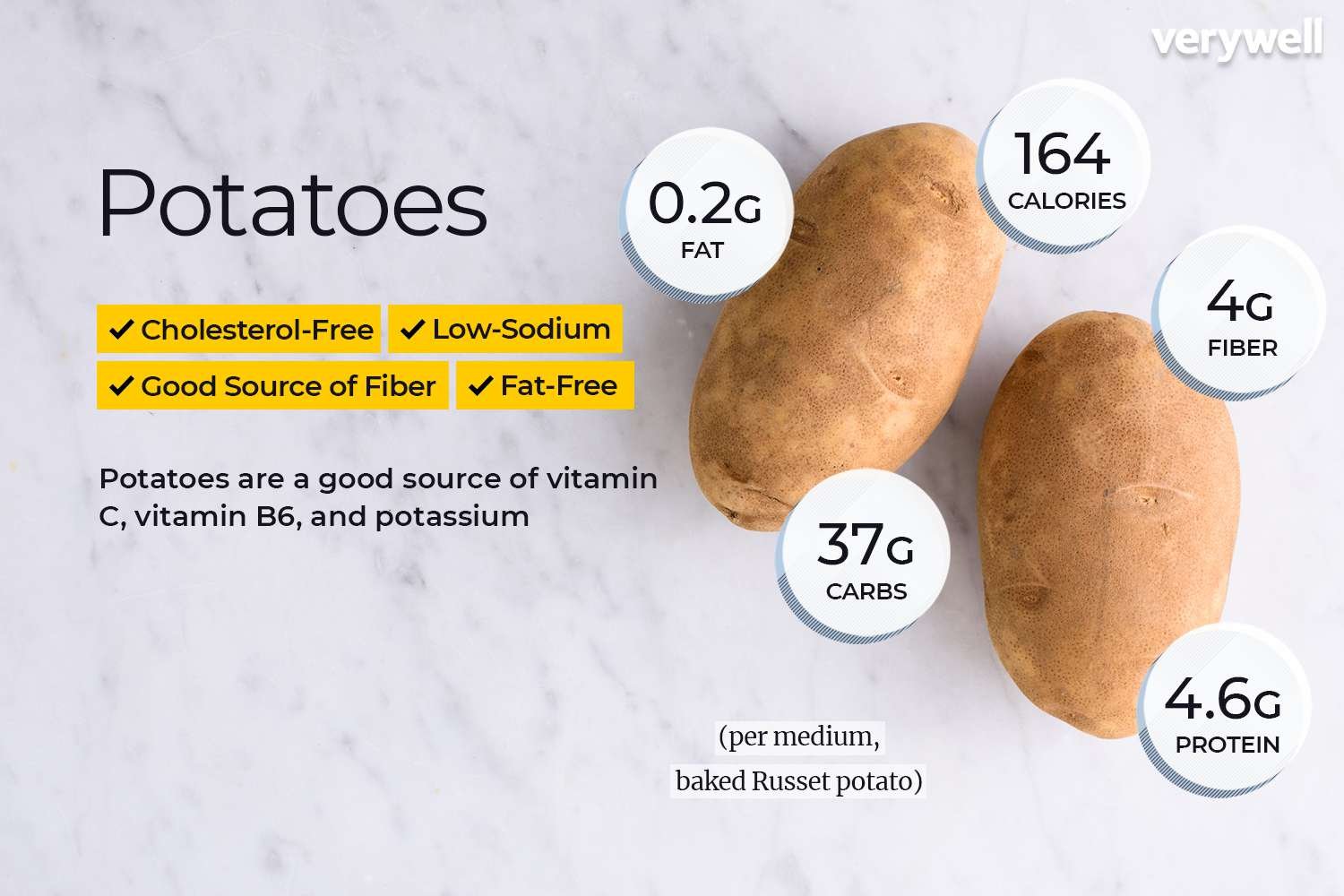Around the globe, potatoes are one of the most popular foods. They appear in meals from many countries, from baked and roasted potatoes to French fries and mashed potatoes. However, despite their widespread use, potatoes are unfairly accused of being “unhealthy” or excessively starchy. In actuality, there are a number of nutritional advantages to properly cooked potatoes. Knowing the facts about potato nutritioncan help you make better choices about including this versatile vegetable in your diet.
An Organic Energy Source
Carbohydrates are the body’s main energy source, and potatoes are an excellent source of them. Approximately 110–130 calories and 26–30 grams of carbs are often found in a medium-sized potato (approximately 150 grams). The majority of them are complex carbs, which aid in sustaining constant energy levels since they break down more slowly than simple sugars.
In food culture, carbohydrates are often seen negatively, but how they are ingested is crucial. Natural potatoes are nutrient-dense and invigorating, not just empty calories, particularly when boiled or baked without additional fats.
Rich In Minerals And Vitamins
Being high in vitamins and minerals is one of the most crucial aspects of potato nutrition facts. Vitamin C, which promotes skin health and immunological function, is especially abundant in potatoes. About 25–30% of the daily required amount of vitamin C may be found in a single medium potato.
Additionally, they have a lot of potassium—more than a banana, really. Potassium is necessary for heart functioning, neuron transmission, and muscle contraction. Potatoes are also a great source of trace levels of vitamin B6, magnesium, and iron.
Between boosting metabolism and lowering the risk of chronic illnesses, these vitamins and minerals are essential for preserving general health.
Naturally Low In Cholesterol And Fat
The fat content of potatoes is another poorly known part of their nutrition. Potatoes by themselves are naturally cholesterol-free and fat-free. The way potatoes are cooked is typically the cause of the health issues that are often linked to them. Potatoes may easily go from wholesome to decadent when they are deep-fried, highly buttered, or covered with cheese and sour cream.
They do, however, maintain their nutritional value and work well in a balanced diet when baked, boiled, or air-fried with little oil. Toppings like Greek yogurt, herbs, or spices may provide taste without introducing bad fats.
Blood Sugar Levels And The Glycemic Index
The glycemic index (GI), which gauges how rapidly a meal boosts blood sugar levels, is one of the reasons potatoes are often brought up in health talks. The GI of potatoes may be elevated, particularly if they are mashed or eaten skinless.
But how your body reacts might vary depending on how much you eat, how you prepare it, and what you eat with it. Consuming potatoes with lean protein, veggies high in fiber, or healthy fats will help reduce blood sugar rises by slowing the absorption of sugar.
The resistant starch content of potatoes, which functions more like fiber and is healthier for blood sugar regulation, may also be increased by boiling and chilling them before eating (like in potato salad).
Slightly Different Profiles, Different Varieties
Not every potato is made equally. Each kind of potato—purple, yellow, red, white, and russet—has its own distinct qualities. Their antioxidants and micronutrients may differ, while having comparable calorie and carbohydrate contents.
Purple potatoes, for instance, are high in anthocyanins, potent antioxidants that have been linked to better heart health and decreased inflammation. Red potatoes are excellent for roasting or boiling because they have a creamier texture and often have more fiber in their skin.
You can make sure you’re receiving a greater range of nutrients and health benefits by including several varieties of potatoes in your meals.
Conclusion
The misunderstanding around this ubiquitous item may be resolved by knowing the potato nutrition facts. Instead of being a bad option, potatoes are a healthy way to get energy, fiber, and vital minerals. The preparation and serving methods are crucial.
If potatoes are eaten in moderation and cooked correctly, they may be a part of a balanced diet that supports digestion, energy, and overall health. Focus on eating them in whole-food forms—baked, boiled, or roasted—with wholesome toppings and well-chosen combinations rather than completely eliminating them.
Therefore, keep in mind that potatoes are actual food with genuine benefits, not merely comfort food, the next time you grab for one.
